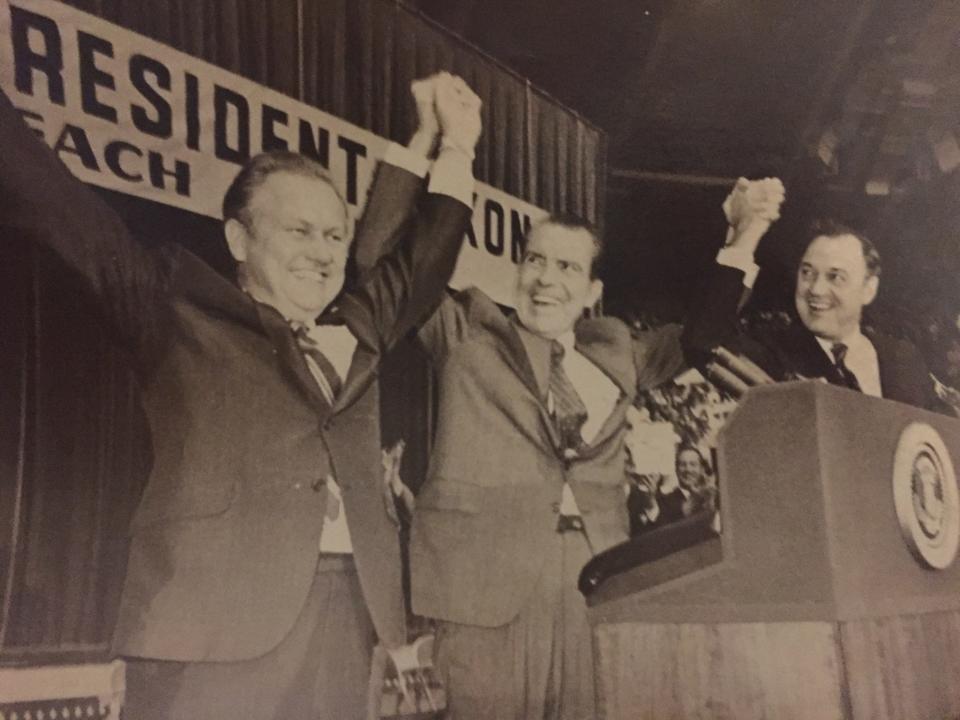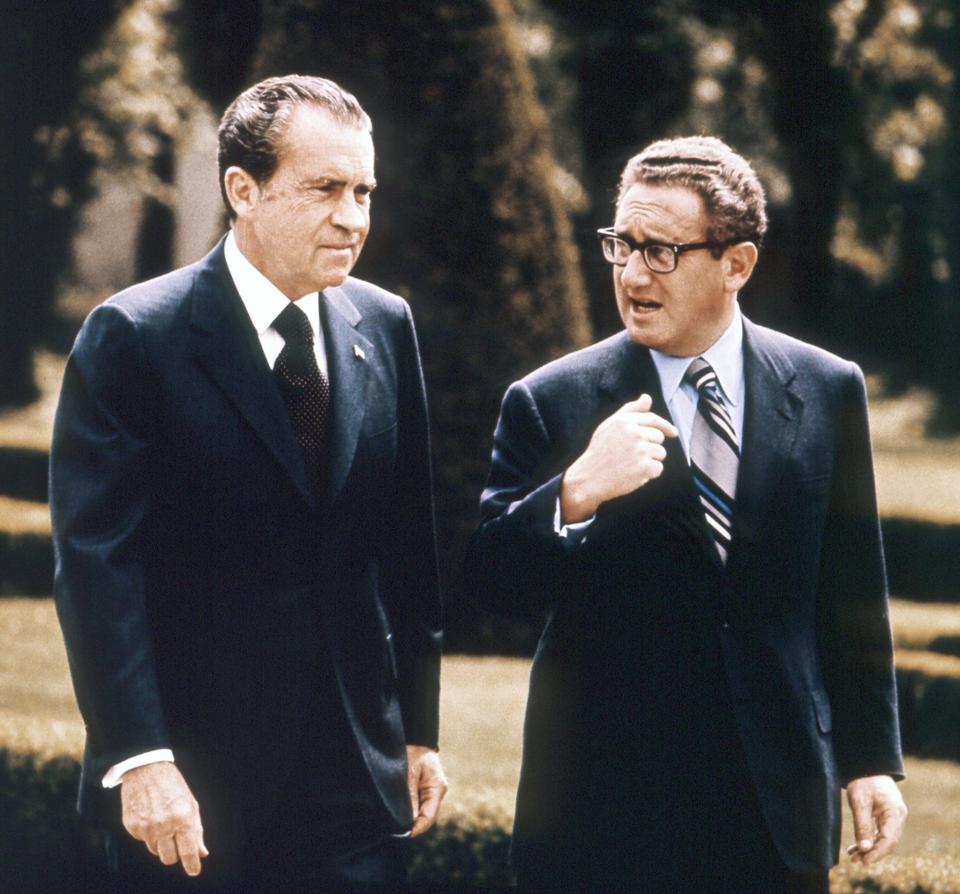If Trump had immunity as president, then why did Nixon need a pardon? What to know
- Oops!Something went wrong.Please try again later.
- Oops!Something went wrong.Please try again later.
- Oops!Something went wrong.Please try again later.
- Oops!Something went wrong.Please try again later.
If Donald Trump is right that presidents have immunity, then why did Richard Nixon need a pardon?
Trump was in a Washington, D.C. federal courtroom Tuesday, Jan. 9 where his attorneys argued before an appeals court that the four-count indictment against him for 2020 election interference should be dismissed. Their position is that Trump, as president at the time, is immune from prosecution because he was carrying out official duties.
Special counsel Jack Smith, who is pressing the case against Trump on the four felonies, has stated that agreeing to Trump's claims would "license presidents to commit crimes to remain in office."
The case is historic because there is no legal precedent informing the court proceedings against a former U.S. president.

The lone pathway to guide the nation in this matter is the 1974 pardon of the 37th president, Nixon, over the Watergate scandal. The political firestorm surged from a break-in at the Democratic National Committee headquarters in search of information that the Nixon 1972 re-election campaign could use against its opponent.
Nixon was implicated in White House audio recordings for leading and assisting a cover-up. When the details of the president's involvement were made public, Nixon resigned as president to avoid being convicted and ousted in an impeachment trial in the U.S. Senate.
Once out of office, the Department of Justice team investigating the Watergate crimes was preparing to indict Nixon for his role in the conspiracy to conceal his White House aides' involvement in the break-in. That is when Nixon's successor, President Gerald Ford, stepped in and ended the Nixon case by granting him a full and unconditional pardon.

It was a pardon that was negotiated by a trusted Ford legal confidante, attorney Benton Becker, who later moved to Boynton Beach and told the whole story.
Here are three stories the Palm Beach Post has written on Becker, Nixon and the pardon — the lone roadmap for addressing allegations of presidential criminality the nation has today.
The Nixon pardon: It was negotiated by a Boynton Beach lawyer. Did it leave a road map for Trump post-presidency?
Who was Benton Becker? 5 things to know about the Boynton Beach man who secretly negotiated Nixon pardon
Legal analysts: Sharp differences between Nixon, Trump belie campaign talk of a pardon
This article originally appeared on Palm Beach Post: Trump claims immunity but Nixon pardon shows presidents liable for acts

